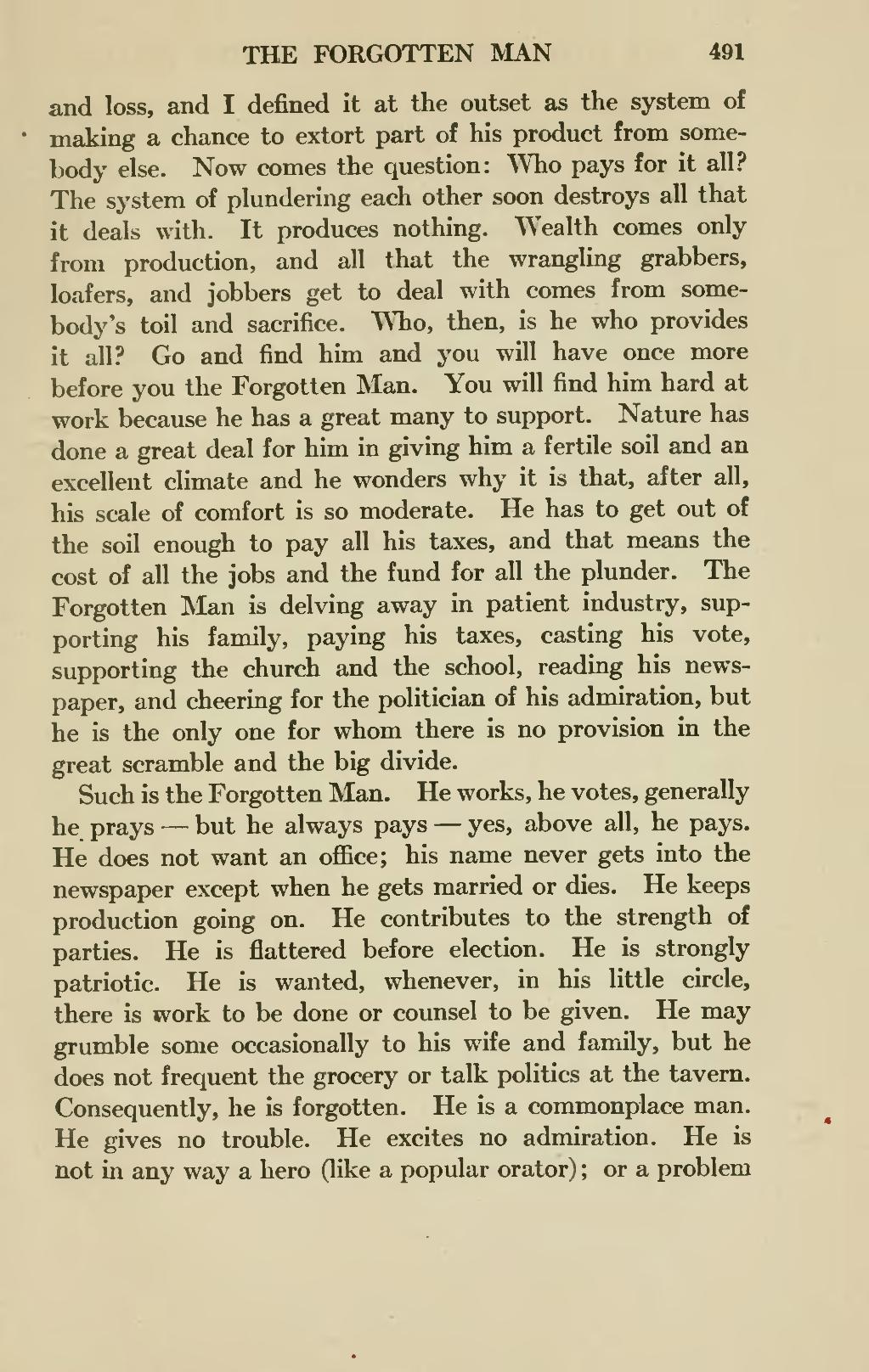and loss, and I defined it at the outset as the system of making a chance to extort part of his product from somebody else. Now comes the question: Who pays for it all? The system of plundering each other soon destroys all that it deals with. It produces nothing. Wealth comes only from production, and all that the wrangling grabbers, loafers, and jobbers get to deal with comes from somebody's toil and sacrifice. Who, then, is he who provides it all? Go and find him and you will have once more before you the Forgotten Man. You will find him hard at work because he has a great many to support. Nature has done a great deal for him in giving him a fertile soil and an excellent climate and he wonders why it is that, after all, his scale of comfort is so moderate. He has to get out of the soil enough to pay all his taxes, and that means the cost of all the jobs and the fund for all the plunder. The Forgotten Man is delving away in patient industry, supporting his family, paying his taxes, casting his vote, supporting the church and the school, reading his newspaper, and cheering for the politician of his admiration, but he is the only one for whom there is no provision in the great scramble and the big divide.
Such is the Forgotten Man. He works, he votes, generally he prays — but he always pays — yes, above all, he pays. He does not want an office; his name never gets into the newspaper except when he gets married or dies. He keeps production going on. He contributes to the strength of parties. He is flattered before election. He is strongly patriotic. He is wanted, whenever, in his little circle, there is work to be done or counsel to be given. He may grumble some occasionally to his wife and family, but he does not frequent the grocery or talk politics at the tavern. Consequently, he is forgotten. He is a commonplace man. He gives no trouble. He excites no admiration. He is not in any way a hero (like a popular orator); or a problem

